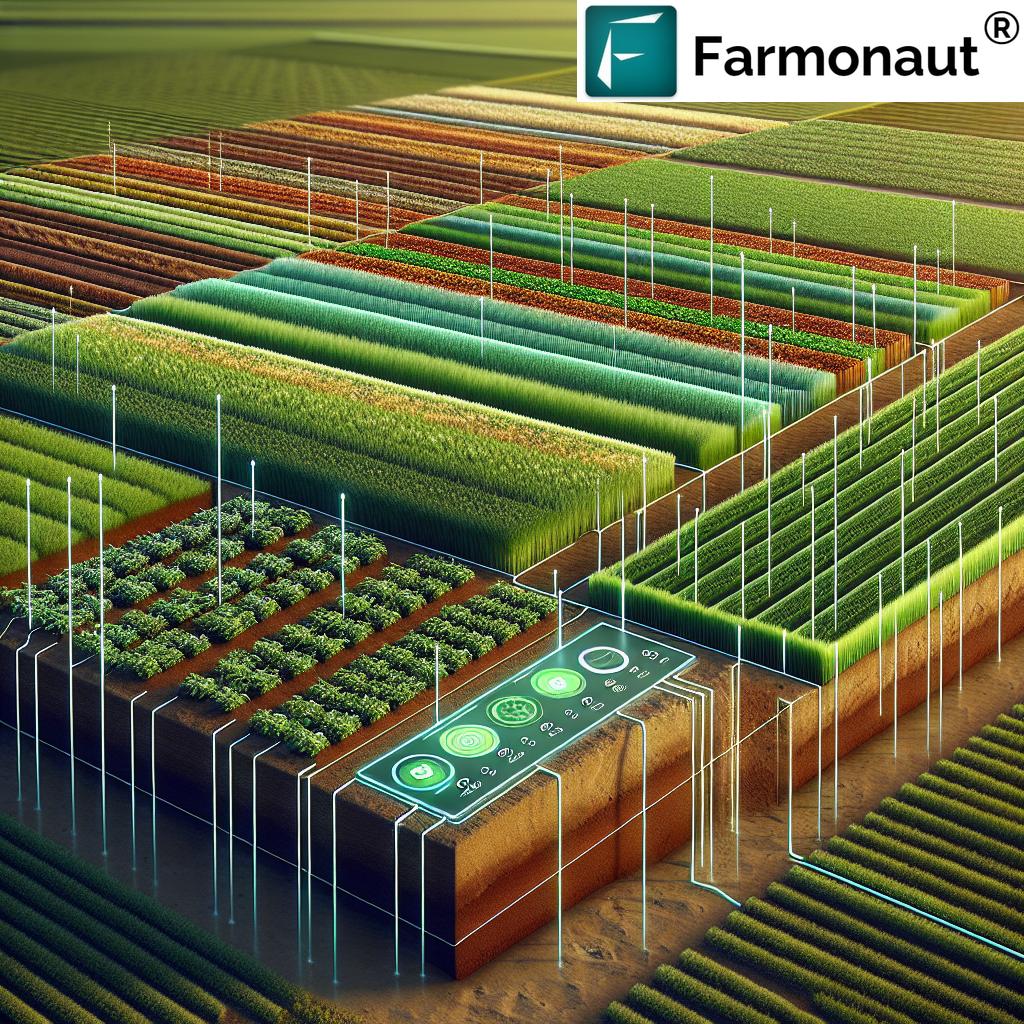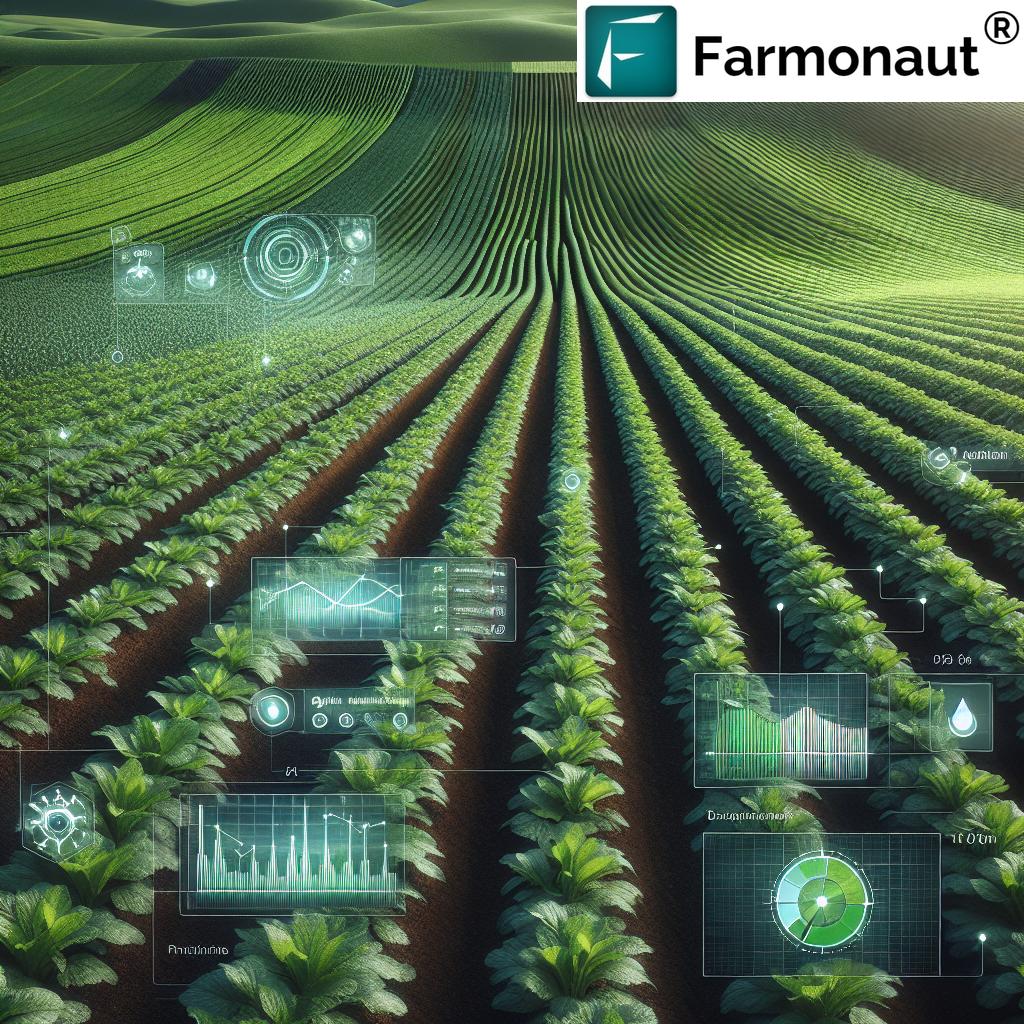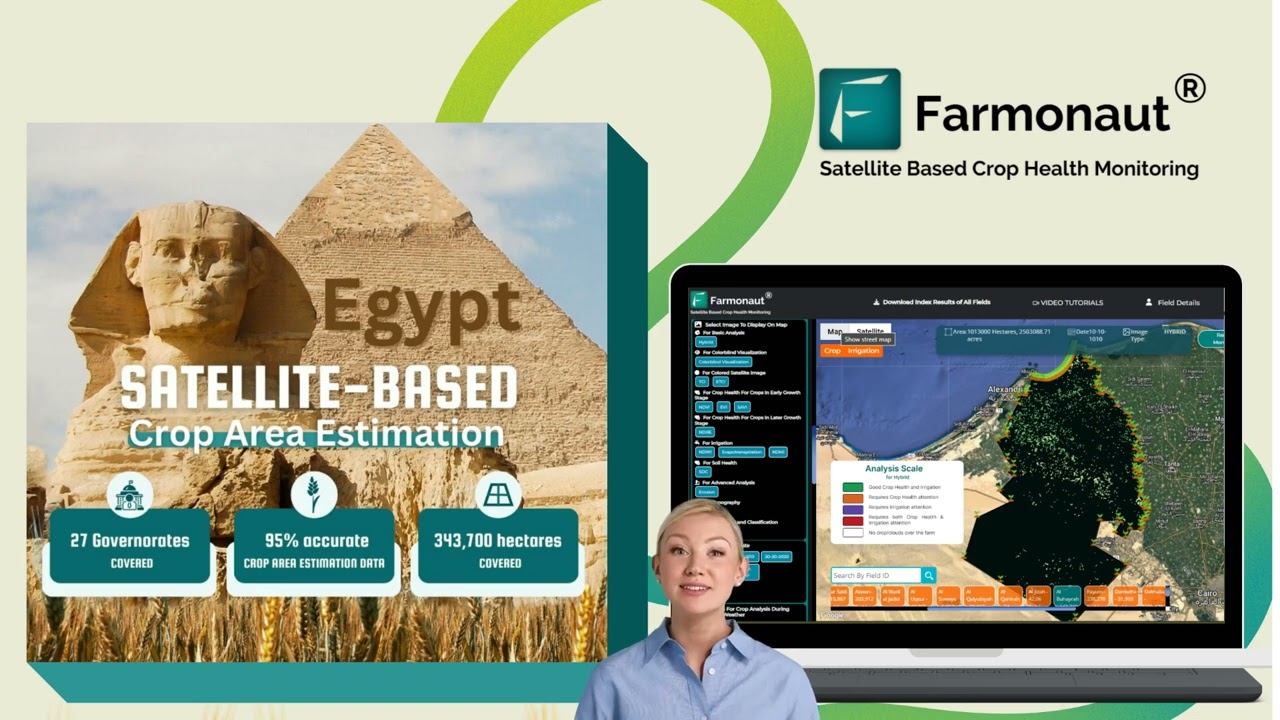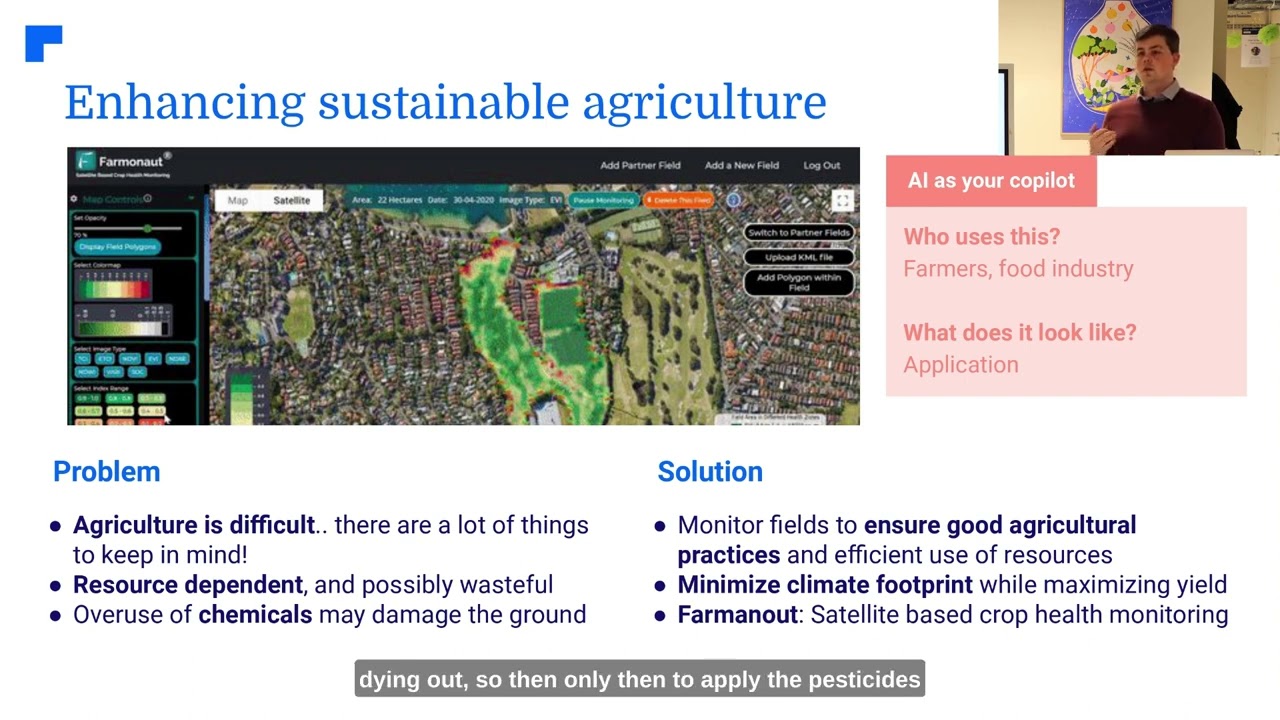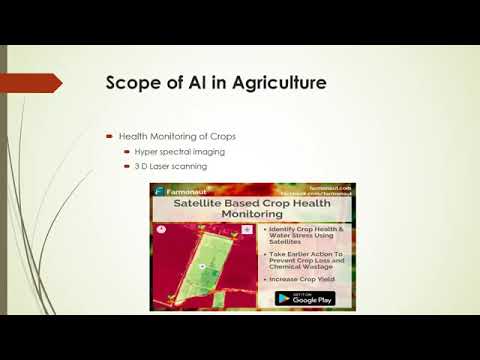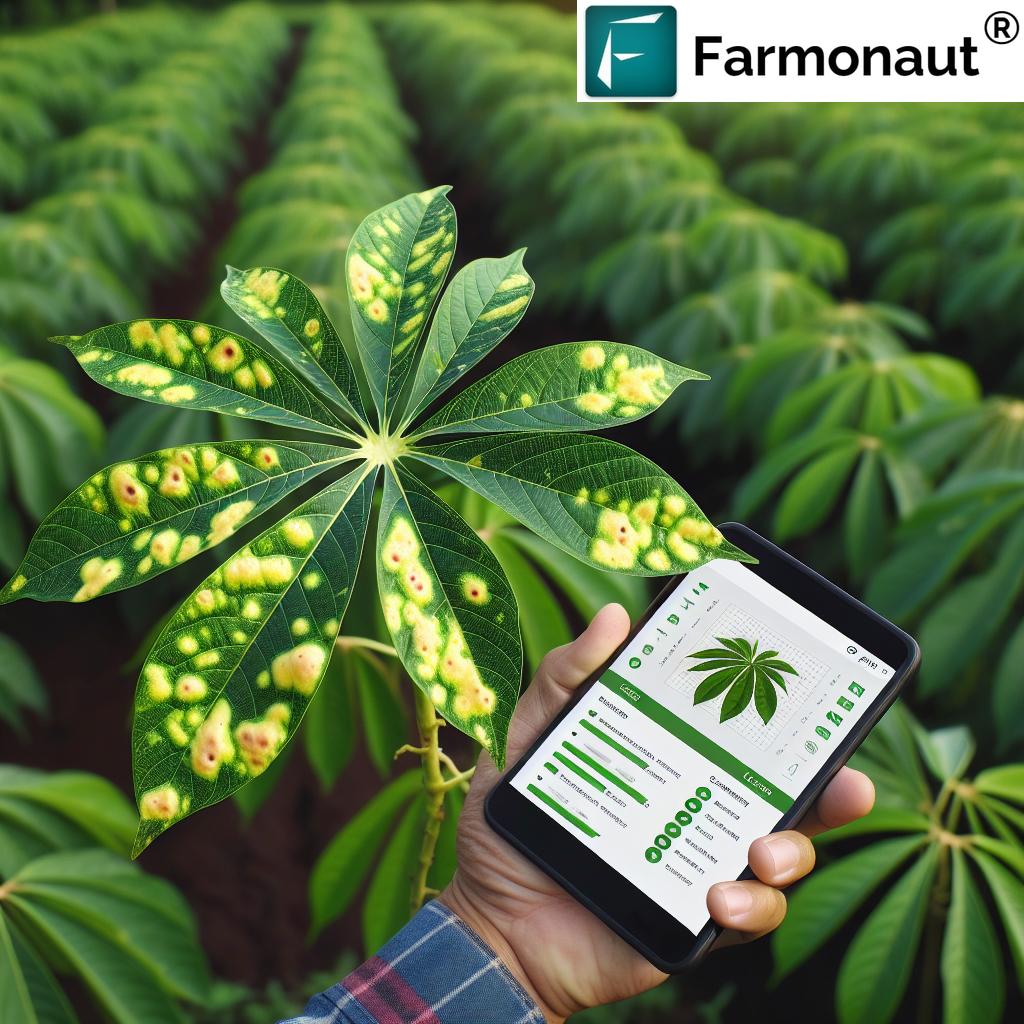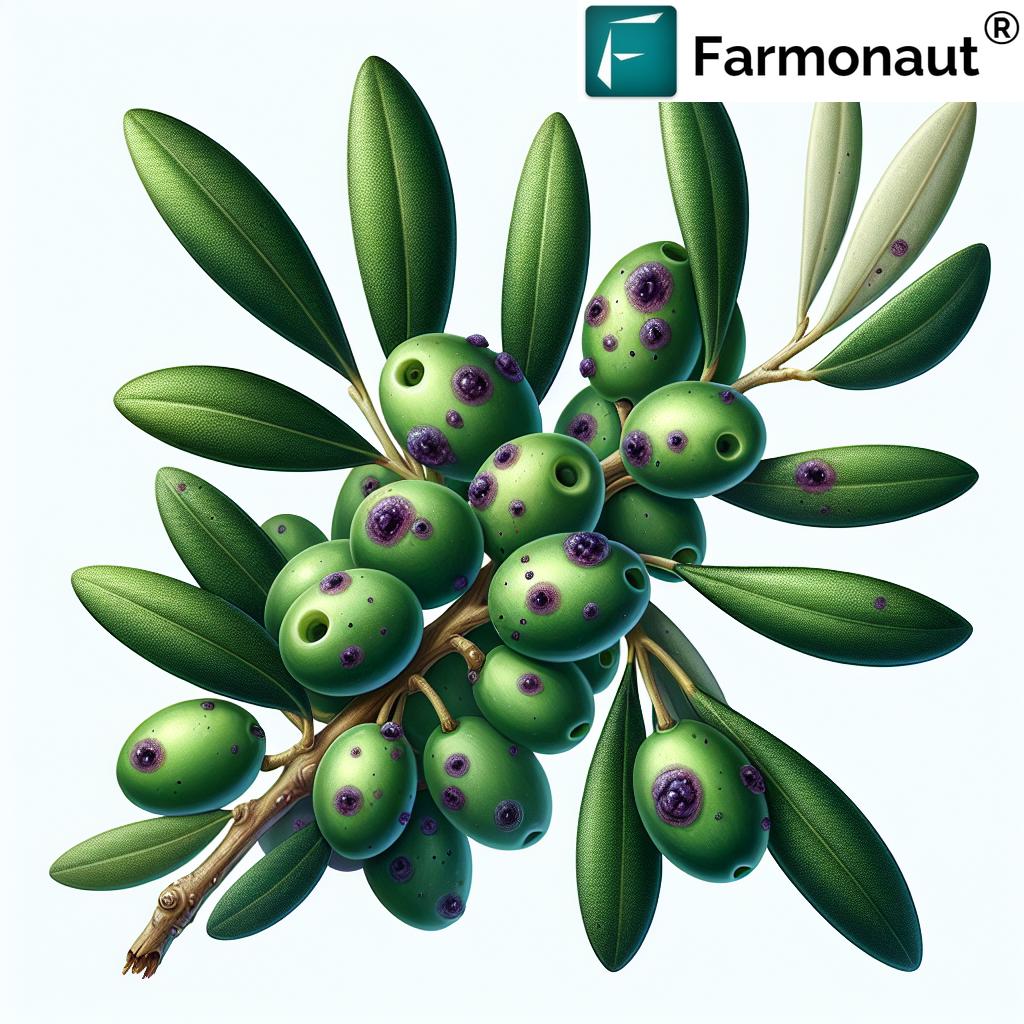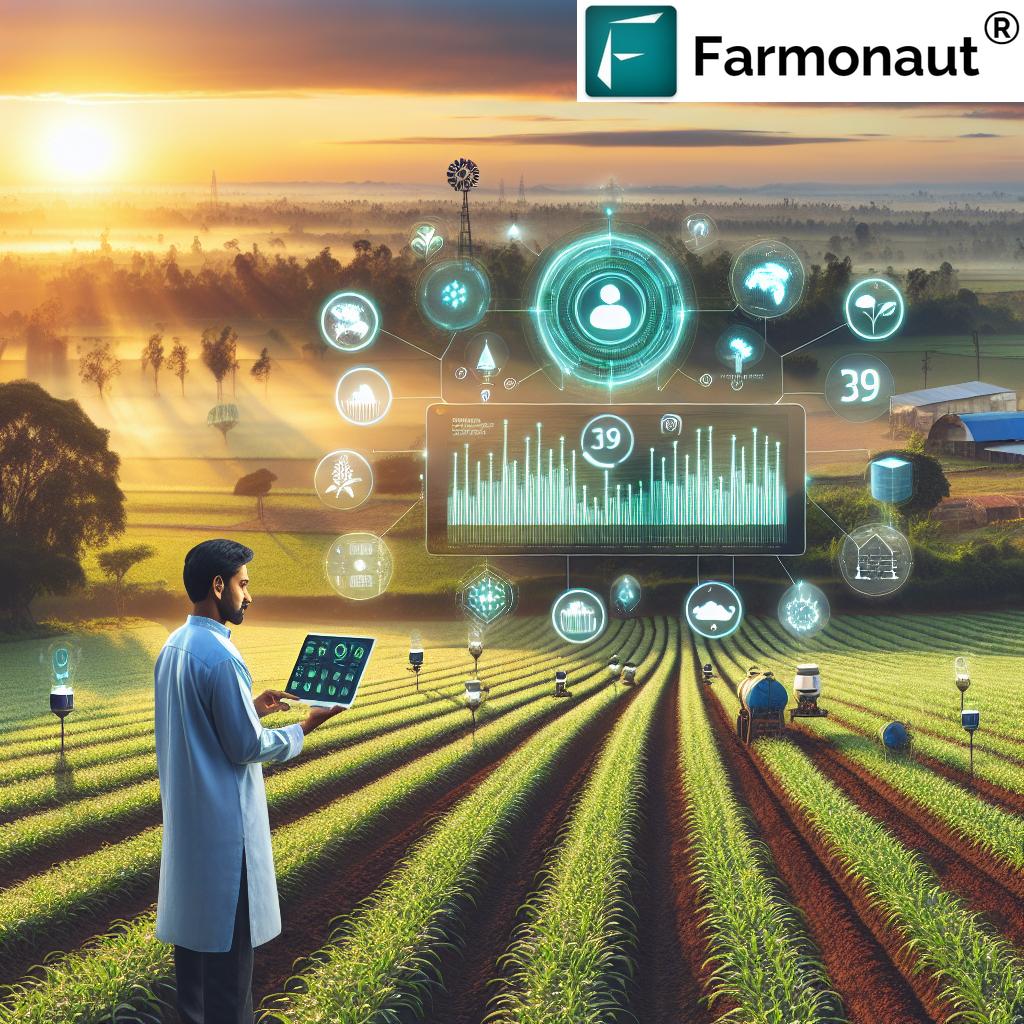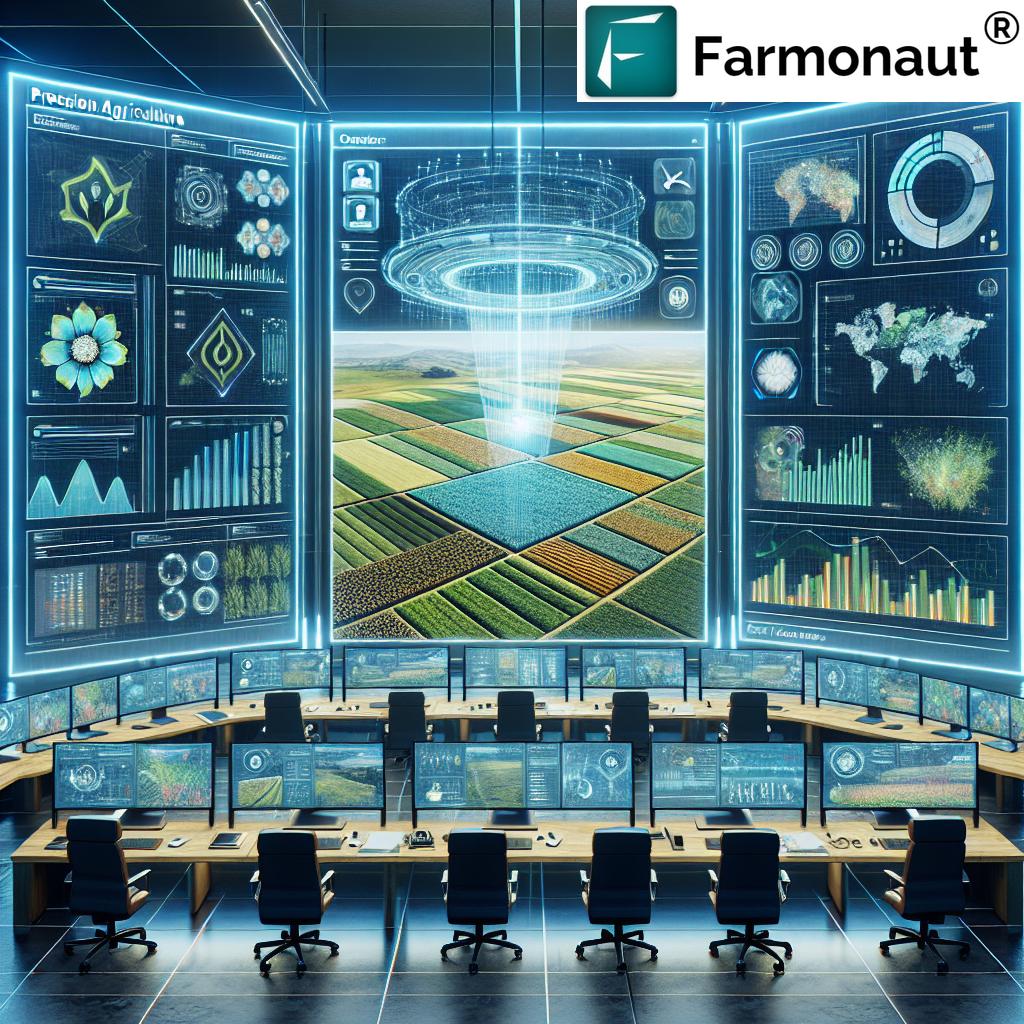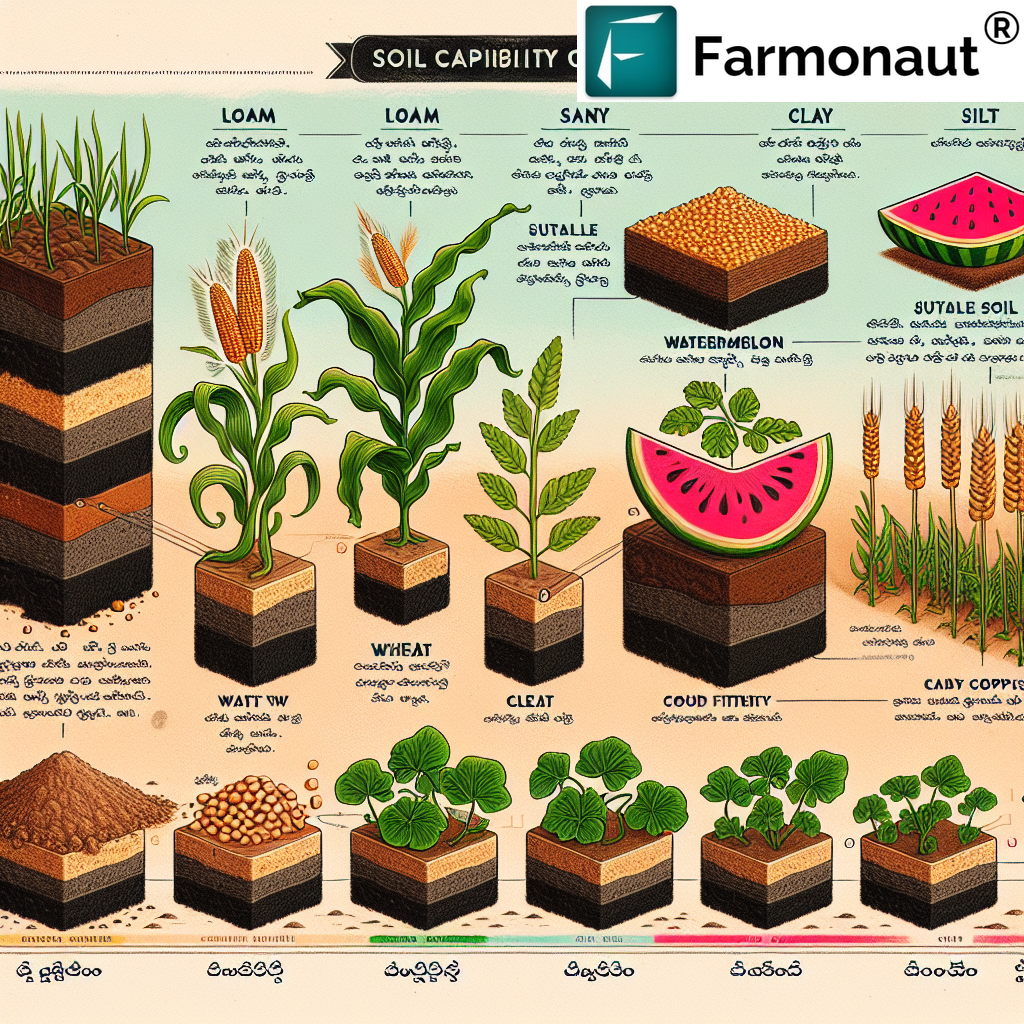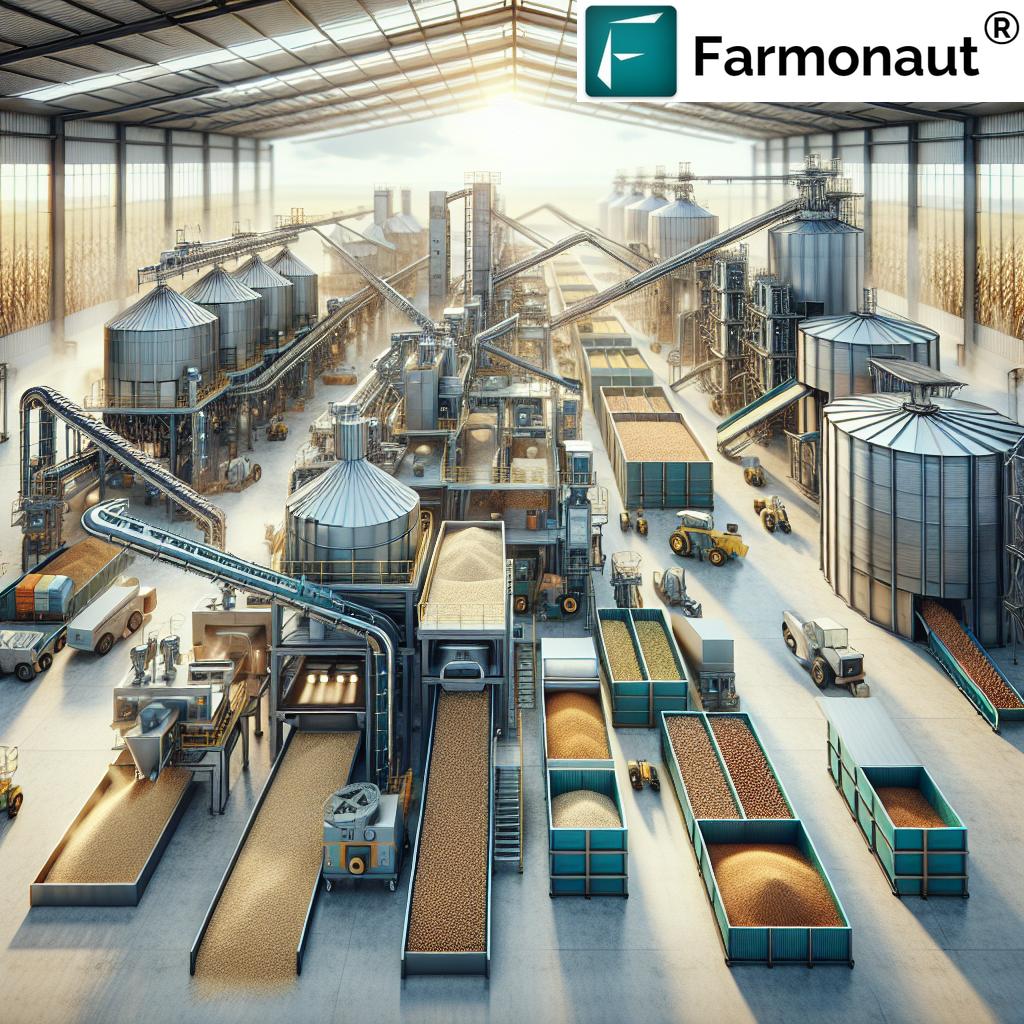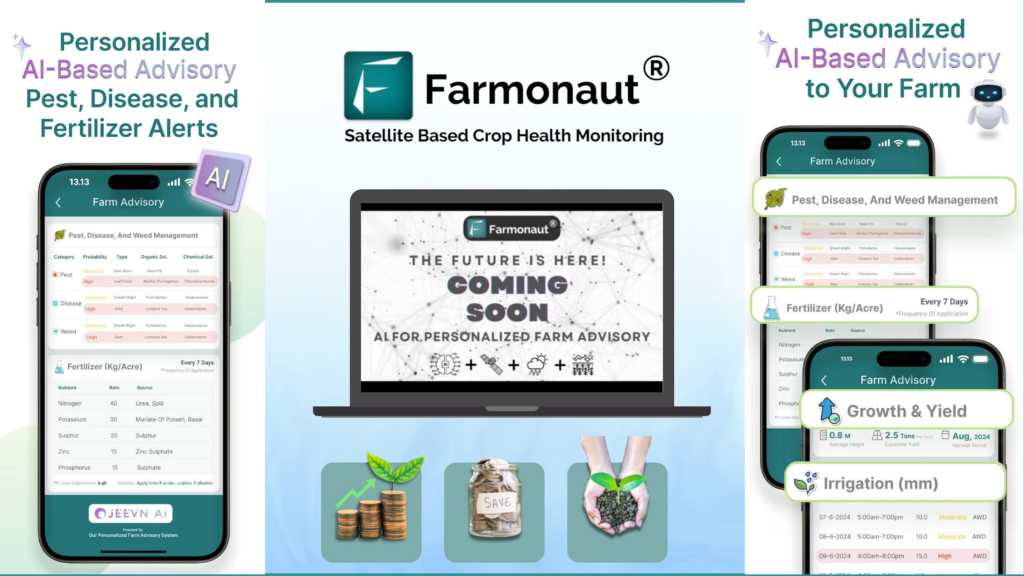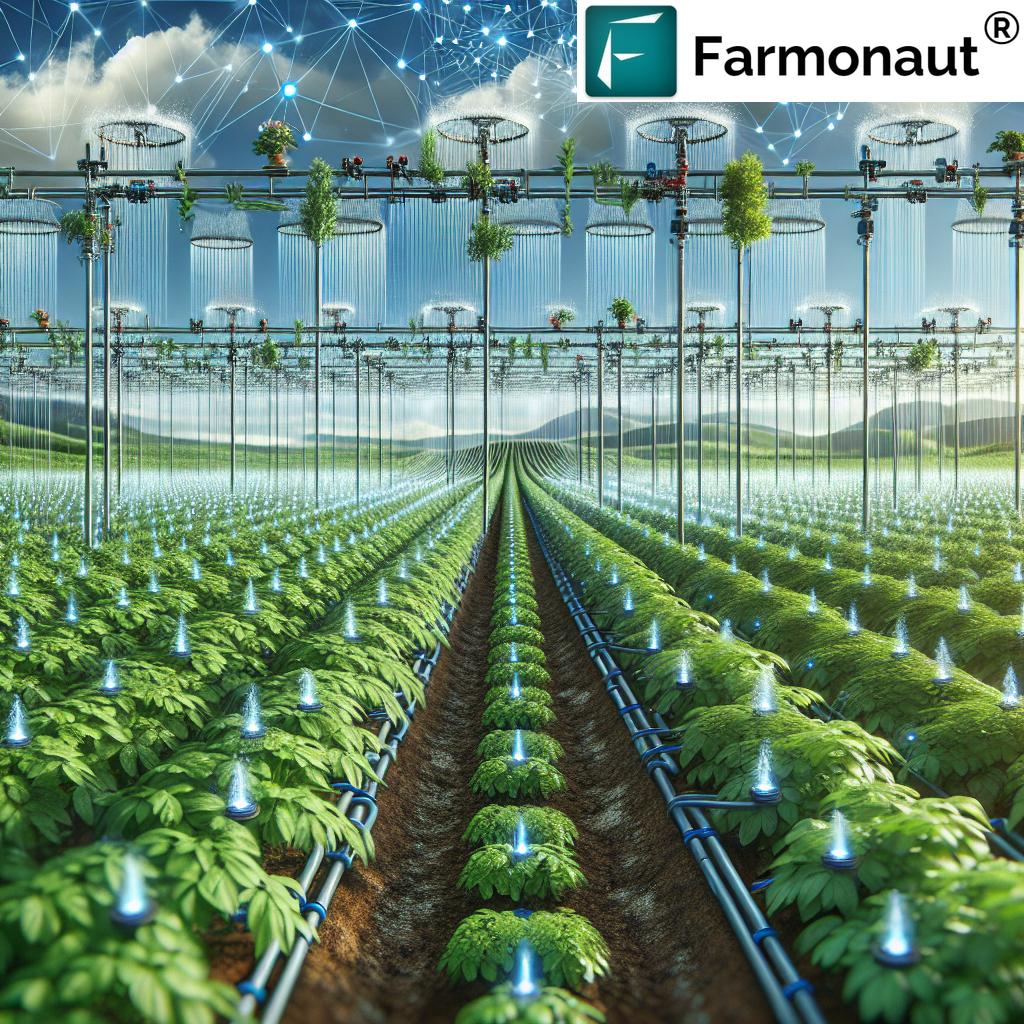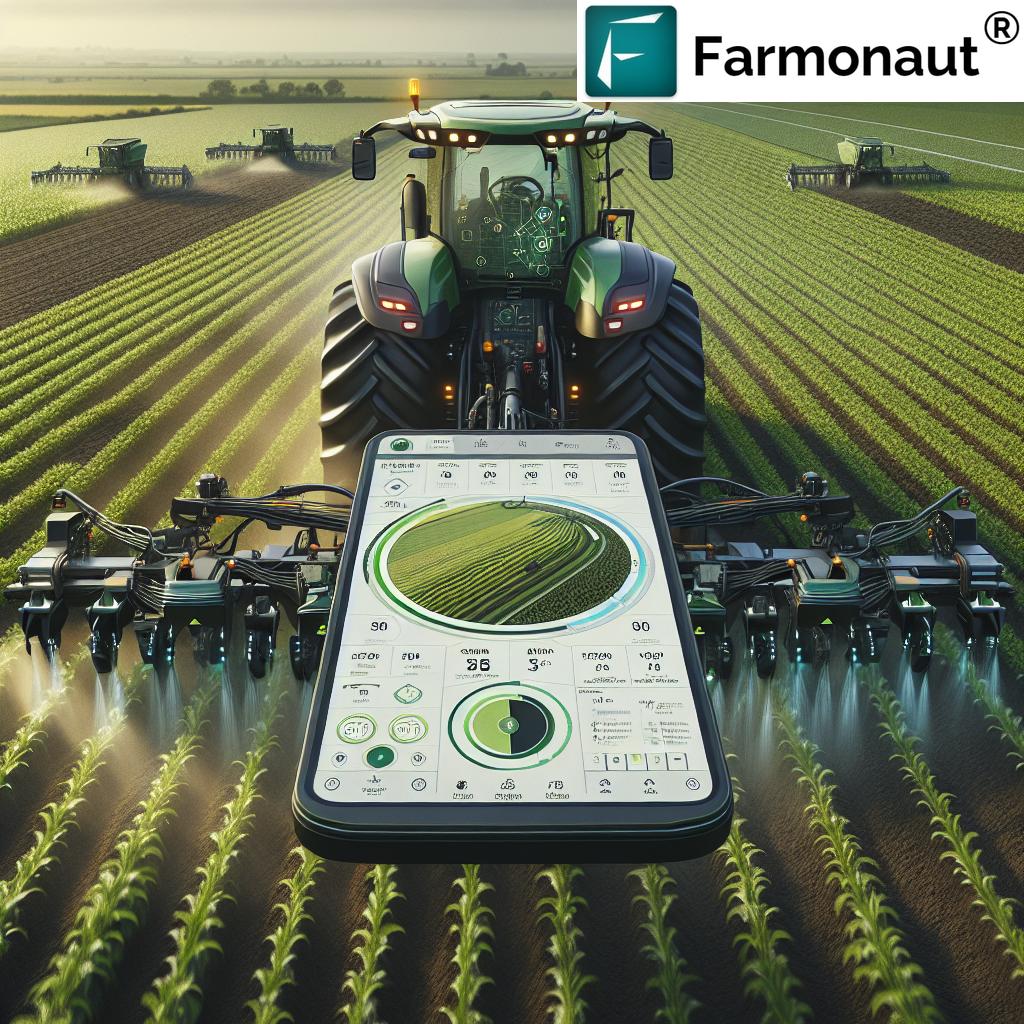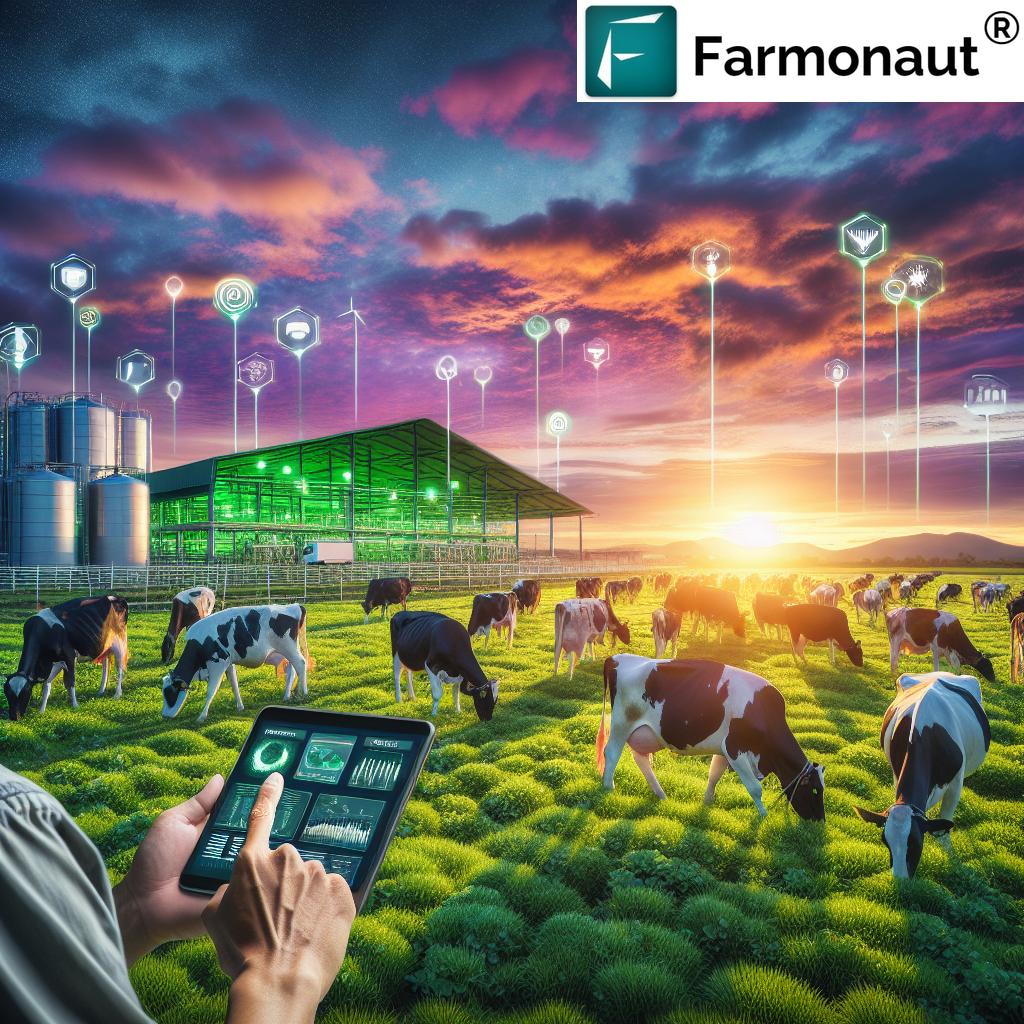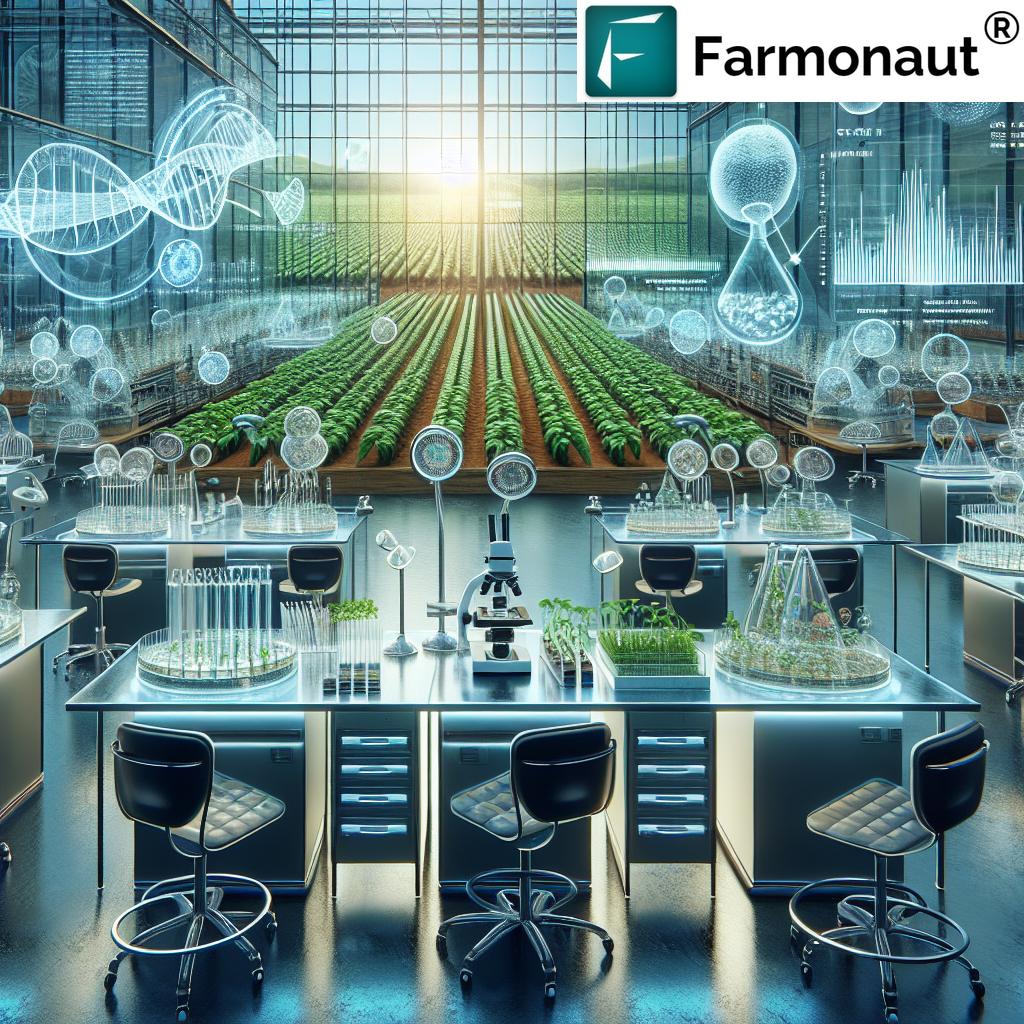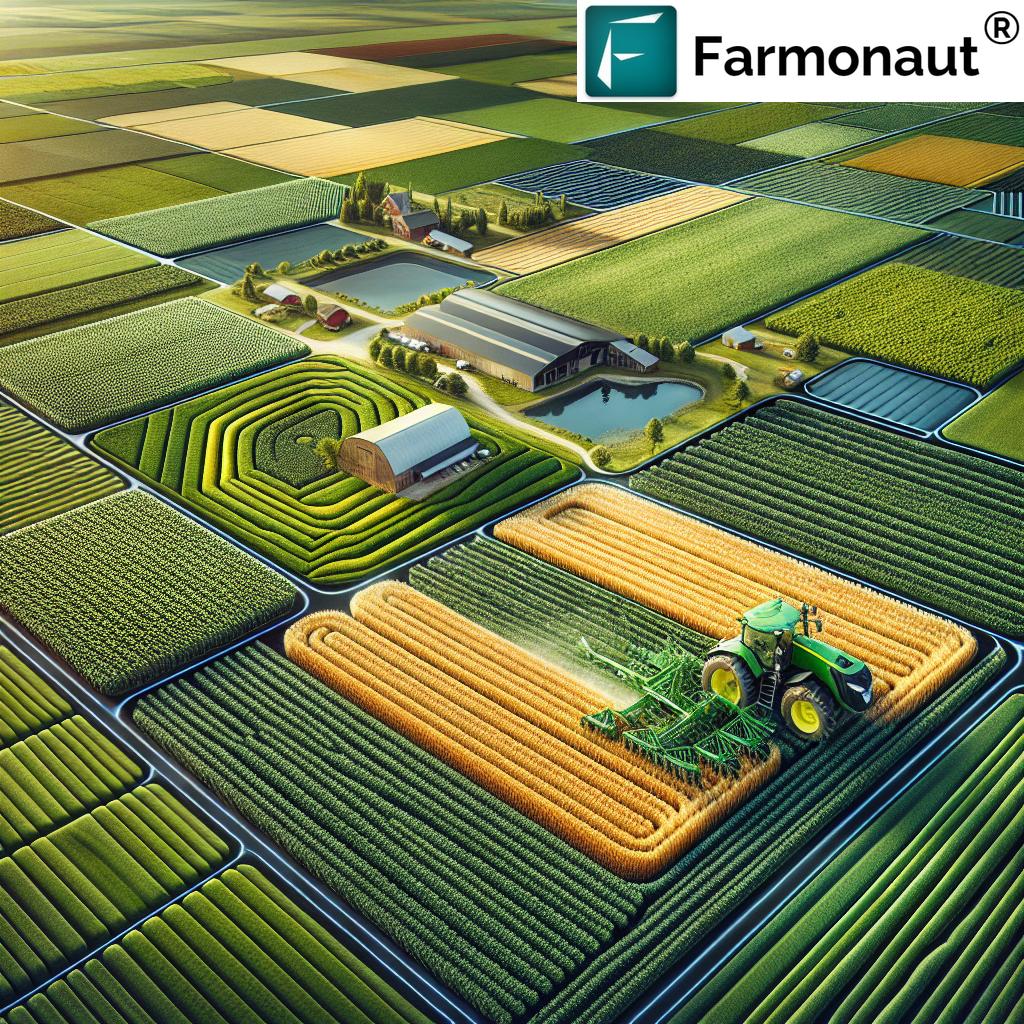Precision Grow Sustainable Agriculture: 7 Game-Changers!
“AI-driven precision agriculture can increase crop yields by up to 20% while reducing fertilizer use by 15%.”
Introduction: Precision Agriculture’s Transformative Power
At the forefront of today’s technology-driven revolution in agriculture, precision agriculture represents more than a buzzword. It is a transformative approach that enables us to optimize crop production, enhance soil health, and dramatically improve our sustainability credentials. By integrating innovative tools, IoT sensors, AI-driven analytics, and data-driven farming solutions, we as modern farmers are empowered to grow more, conserve essential resources, and reduce our environmental impact.
In this in-depth blog, we explore the 7 game-changing technologies supercharging sustainable agriculture practices, and show how platforms like Farmonaut are making precision farming technology accessible and scalable for farmers worldwide.
What is Precision Agriculture?
Precision agriculture, also known as precision farming, is the application of advanced technologies and data analytics to maximize crop yields, minimize input “waste,” and promote sustainable farming practices. This data-driven approach enables us to make targeted decisions tailored to our fields’ specific zones and requirements.
Key pillars of precision agriculture include:
- Gathering real-time information about crops, soil, and weather
- Utilizing IoT sensors in agriculture, drone technology in farming, and AI in crop management
- Integrating advanced farming technologies for resource efficiency and environmental health
- Adaptation for diverse scales: from smallholders to large-scale farm management
- Promoting carbon footprint reduction and traceability through transparent blockchain systems
By leveraging data, variable rate application tools, and digital decision support, precision farming technology allows us to move away from the old, one-size-fits-all approaches and towards highly optimized crop management.
The 7 Game-Changers in Sustainable Agriculture
Let’s explore the seven most impactful advanced farming technologies driving precision agriculture and sustainable agriculture practices worldwide.
1. GPS & GIS Technologies: Mapping the Future of Fields
Modern GPS (Global Positioning Systems) and GIS (Geographic Information Systems) have redefined field management for us as farmers. By accurately mapping and segmenting our fields into smaller, manageable zones based on soil type, nutrient content, and historical performance, we are able to make informed, customized farming decisions.
- GPS allows us to pinpoint specific areas with different nutrient needs.
- GIS technology enables us to record and analyze spatial data about crop performance, soil health, and resource usage.
- This enables targeted fertilizer application, waste reduction, and helps prevent soil degradation over time.
For example, with GIS-based mapping, we can apply fertilizer variably based on each soil zone’s requirements, thus reducing chemical usage while maximizing crop health and yield.
“Soil health monitoring with advanced tech has improved nutrient management efficiency by 30% in sustainable farms.”
2. IoT Sensors in Agriculture: Real-Time Data for Smart Decisions
IoT (Internet of Things) sensors have revolutionized our ability to monitor and manage farmland. By placing sensors across the field, we are able to measure critical parameters in real time:
- Soil moisture and temperature at various depths
- pH levels and nutrient content
- Weather conditions influencing evaporation and growth
All this data is sent to a central system or mobile dashboard, enabling us to:
- Automate precision irrigation systems for optimal water usage
- Track and adjust fertilizer/chemical application exactly when and where it’s needed
- Prevent overwatering, saving up to 50% in water consumption—a vital benefit for Indian farmers dealing with water scarcity (e.g., solutions similar to Fasal’s innovations)
The synergy between IoT sensors and precision ag analytics translates to greater yield improvement and lower resource wastage.
3. Drone Technology in Farming & Remote Sensing
The rise of drones and advanced remote sensing has unleashed new possibilities for Indian agriculture and beyond:
- High-resolution images of entire fields, updated frequently
- Early detection of pest infestations, disease outbreaks, or nutrient deficiencies before they cause widespread loss
- Targeted intervention — we can spray or treat only the affected zones
Indian startups like Garuda Aerospace and Skylark Drones have made drone-based solutions affordable, but globally, drone technology in farming is now a standard tool in sustainable, data-driven farm management.
By reducing chemical usage and supporting efficient monitoring over large areas, drones directly support both economic and environmental goals.
4. AI in Crop Management & Machine Learning Analytics
Artificial Intelligence (AI) and Machine Learning (ML) now play a critical role in data-driven farming solutions:
- AI analyzes historical crop performance, soil, and weather data to guide optimal planting schedules, crop selection, and input rates
- ML models predict pest outbreaks, disease risk, and irrigation requirements down to the micro-zone
- AI-powered platforms (such as Farmonaut’s Jeevn AI Advisory System) provide us with personalized, real-time recommendations for every farm
Notably, innovative tools like AI-driven weed detection robots are already reducing chemical herbicide usage in Indian fields, enhancing sustainability.
The adoption of AI in crop management allows us to optimize yield, conserve resources, and reduce environmental impacts—hallmarks of next-level precision agriculture!
5. Soil Health Monitoring Systems: Foundation of Sustainability
Our journey towards sustainable agriculture hinges on maintaining healthy, productive soils. Soil health monitoring systems equipped with advanced sensors and robust analytics allow us to:
- Track real-time nutrient levels, organic content, pH balance, and moisture
- Diagnose imbalances that affect crop yields or promote soil degradation
- Use data-driven interventions such as precision-applied amendments, timely use of cover crops, or specialized fertilizer blends
Platforms like Farmonaut monitor soil moisture and health using multispectral satellite imagery, arming us with timely, spatially accurate data for every decision.
Healthy soil is the engine of crop production—these innovative systems ensure we maintain fertility for decades ahead.
For more on carbon impact and soil sustainability, check out Farmonaut’s Carbon Footprinting solution.
6. Precision Irrigation Systems: Smarter Water Usage
In a world facing water scarcity, especially among Indian farmers, precision irrigation systems deliver the dual promise of increased yields and environmental sustainability:
- Smart sensors monitor soil moisture content at different depths and field zones
- Automated systems turn irrigation on/off, delivering the optimal amount of water only where it’s needed
- Integration with real-time weather data and field topology maps further refines water distribution
Precision irrigation can decrease water consumption by up to 40% and boost yields at the same time—a vital win for farmers everywhere!
Explore Farmonaut’s large-scale farm management tools for holistic irrigation, crop, and resource oversight.
7. Satellite-Based Crop Health Monitoring (Farmonaut)
Satellite imagery and remote sensing redefine how we monitor crops at scale. Farmonaut’s satellite-based platform provides:
- Multispectral images capturing vegetation health (NDVI), soil moisture levels, and more
- Frequent updates—identifying problems before ground scouting can
- Integration with AI-based crop advisory for actionable insights
- Accessibility across Android, iOS, and browser apps, as well as powerful APIs
Learn more about Farmonaut’s Blockchain-Based Traceability solution.
This system makes precision agriculture affordable and scalable for farmers of all sizes, enabling real-time management and targeted resource deployment on a global scale.
Comparison Table: Precision Agriculture Technologies & Benefits
| Technology | Core Function | Estimated Yield Improvement (%) | Soil Health Impact | Sustainability Benefit |
|---|---|---|---|---|
| IoT Sensors in Agriculture | Real-time monitoring of soil moisture, nutrient, pH, weather | 10-25% | Prevents over/under-irrigation; supports balanced soil biota | Reduces water waste, chemical runoff |
| AI & Machine Learning Analytics | Predictive analytics for input optimization & risk detection | 15-21% | Enables targeted fertilization/amelioration strategies | Reduces input use, boosts resource efficiency |
| Drone Technology in Farming | Aerial imagery for monitoring and targeted interventions | 10-15% | Identifies early soil/crop stress, supports targeted health actions | Enables spot application, reduces chemical use |
| Soil Health Monitoring Systems | Ongoing diagnosis of soil nutrient and organic matter status | 12-18% | Improves soil structure, balances nutrients | Boosts carbon sequestration, mitigates degradation |
| Precision Irrigation Systems | Automated, variable water delivery based on real soil needs | 15-22% | Prevents soil nutrient leaching/improves microbial life | Saves 30-40% water, supports drought resilience |
| Satellite Imagery (Farmonaut) | Large-scale crop health, moisture, and growth mapping | 12-20% | Enables early detection of soil issues, supports interventions | Facilitates reduced fertilizer and irrigation usage |
| Decision Support Systems (Farmonaut Jeevn AI) | Personalized farm advice & data integration | 15-21% | Supports long-term regenerative practices | Promotes holistic sustainability and traceability |
Environmental Benefits of Precision Farming
By embracing precision agriculture technologies, we are not only optimizing crop production but also reducing chemical usage and safeguarding our ecosystems:
- Water Conservation: Precision irrigation systems, enhanced by IoT sensors, enable a reduction of 30–40% in water consumption by delivering water only where and when the crop truly needs it.
- Reduced Chemical Waste: GPS-guided, zone-specific application means we use up to 35% less chemical inputs, while still maintaining pest and disease control effectiveness.
- Soil Health Management: Advanced soil sensing and data-driven analytics give us the confidence to target amendments, reduce over-fertilization, and promote long-term soil health, promoting greater carbon sequestration and minimizing degradation.
- Enhanced Biodiversity: Precision application keeps non-target areas chemical-free, benefitting beneficial insects and promoting biodiversity.
Economic Advantages & Yield Optimization
Adopting precision farming technology leads to tangible economic benefits for us as farmers:
- Higher crop yields: Research shows adoption can boost yields by up to 21%.
- Lower input costs: Up to 26% reduction in fertilizer and 34% reduction in pesticides through targeted application.
- Improved resource efficiency: Our investments in data-driven farming solutions pay back quickly through higher profits and reduced wastage.
- Risk mitigation: Real-time monitoring and AI insights help us catch stressors early, preventing major losses.
These statistics highlight the revolutionary potential of precision agriculture in delivering both economic growth and environmental sustainability.
Farmonaut: Pioneering Affordable Advanced Farming Technologies
Farmonaut is redefining what’s possible for Indian farmers and global agriculture through affordable, scalable precision farming solutions. Our platform utilizes:
- Satellite-based crop health monitoring—delivering crucial data on NDVI, soil moisture, and field variability to any device.
- AI-powered advisory (Jeevn AI)—giving customized, real-time guidance on crop management and input requirements.
- Blockchain-based traceability—ensuring transparency, authenticity, and consumer trust in food supply chains.
- Fleet/resource management tools—optimizing vehicle and machinery usage on large farms with Farmonaut’s Fleet Management module.
- Carbon footprint tracking—enabling sustainable compliance and environmental stewardship through Farmonaut’s Carbon Footprinting Solution.
Unlike traditional tools, Farmonaut’s reliance on satellite data means no expensive hardware or sensors are needed—making precision agriculture affordable for everyone.
Farmonaut’s Subscription Plans: We offer flexible subscription models for everyone, whether you’re an individual farmer, a large agribusiness, or a corporate client looking for traceability and sustainability benefits.
- Interested in satellite monitoring for insurance/crop loans? Learn how Farmonaut streamlines crop verification.
- Manage vast plantations? Explore our large-scale management suite.
Integrating Advanced Technologies in Real-World Farming
To maximize the benefits of precision agriculture, we recommend:
- Start with data: Use satellite imagery and IoT sensors for your field’s baseline. Farmonaut’s app or API is a great resource for this step.
- Adopt targeted management: Apply water, fertilizer, and chemicals only to zones that require it. Decision support from AI-based advisory tools can make this seamless.
- Monitor results: Rely on remote sensing, drone mapping, and real-time sensor analytics to assess performance and adapt.
- Improve sustainably: Use soil health monitoring to support regenerative practices like cover cropping and reduced tillage.
- Deploy traceability: Implement blockchain-based product traceability for certifications and market value.
By gradually integrating each technology as budgets allow, we future-proof our operations, reduce environmental impacts, and increase profitability.
Challenges & Considerations in Precision Farming Adoption
While the benefits are immense, there are genuine challenges to address for effective precision farming:
- High Initial Investment: Some advanced technologies require significant upfront costs, which may be a hurdle for smallholders. That’s why satellite-based platforms like Farmonaut offer cost-effective alternatives.
- Data Management: The vast flow of information requires robust storage, analytics, and interpretation systems. Partnering with digital providers can help reduce this complexity.
- Technical Expertise: Harnessing new tools requires ongoing learning; many Indian farmers and organizations need support and training for full adoption.
- Data Privacy & Security: Collecting and utilizing vast farm data raises questions of privacy and information protection. Working with credible providers and reviewing data policies is critical.
As technology and accessibility improve, and as digital literacy rises, these challenges will continue to decline.
The Future Outlook: Innovation in Data-Driven Farming Solutions
The future of precision agriculture is exceptionally bright. Here’s what excites us most:
- AI, machine learning, and big data integration will further refine recommendations, maximizing both yields and sustainability.
- Cheaper, user-friendly satellite imagery and API platforms (such as Farmonaut’s satellite API) will democratize data access for every farmer, researcher, and agribusiness.
- Expansion into carbon footprint reduction and green certifications will become mainstream. Rather than being aspirational, sustainable agriculture practices will be the norm.
- Real-time, blockchain-based traceability will enhance transparency, profitability, and trust for food producers and supply chains.
As we move ahead, precision farming technology will underpin the planet’s food security, regenerate soils, and sustain rural economies.
Frequently Asked Questions (FAQ)
What is precision agriculture?
Precision agriculture is a technology-driven farming approach using data, sensors, analytics, and advanced tools to optimize input usage and crop yields, while reducing environmental impact and resource wastage.
How does Farmonaut help make precision agriculture affordable?
Farmonaut leverages satellite imagery and AI-based analytics, eliminating the need for expensive hardware or on-field sensors. This makes precision agriculture accessible and affordable for individual farmers as well as large agribusinesses.
What are the core benefits of using IoT sensors in agriculture?
IoT sensors provide real-time insight into soil moisture, pH, nutrient content, and weather, allowing automated and targeted input management to enhance sustainability and yields.
Which precision farming technologies are most crucial for Indian farms?
For Indian farms, key technologies are: satellite-based monitoring (like Farmonaut), precision irrigation systems, AI-driven advisories, IoT-enabled sensors, and drone-based remote sensing for early issue detection.
Can precision agriculture improve soil health and sustainability?
Absolutely. Through soil health monitoring, targeted interventions, and reduced chemical input, precision agriculture supports nutrient balance, carbon sequestration, and long-term soil vitality.
How can I get started with Farmonaut’s solutions?
You can access Farmonaut via our mobile app, API services, or contact us for custom solutions and subscriptions.
Conclusion: Advancing Towards Sustainable Agriculture Practices
The shift to precision agriculture is no longer a futuristic dream—it’s a present-day reality. By leveraging data-driven technologies—from GPS & GIS, IoT sensors, AI and drone technology, to satellite-based platforms like Farmonaut—we are poised to overcome our greatest agricultural challenges:
- Improving crop yields while conserving precious water and fertilizer
- Building healthier soils and resilient farm ecosystems
- Reducing unnecessary chemical usage and runoff
- Making sustainability affordable and scalable for every farmer—from smallholders in India to large, global agribusinesses
At Farmonaut, we are proud to offer affordable, innovative, and scalable solutions that empower every stakeholder in the agricultural ecosystem. Together, with broader adoption of these game-changing tools and systems, we can optimize productivity, reduce environmental impacts, and secure a greener, more prosperous future for all.





